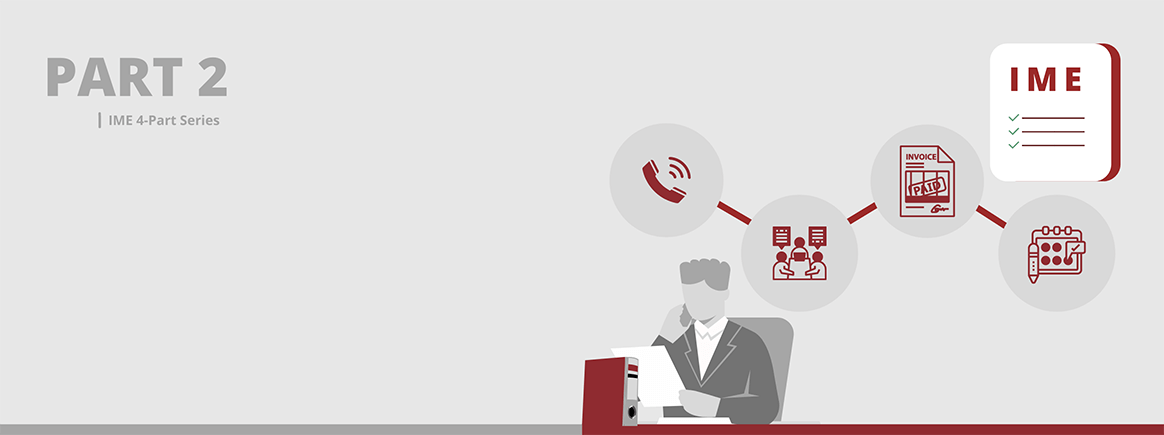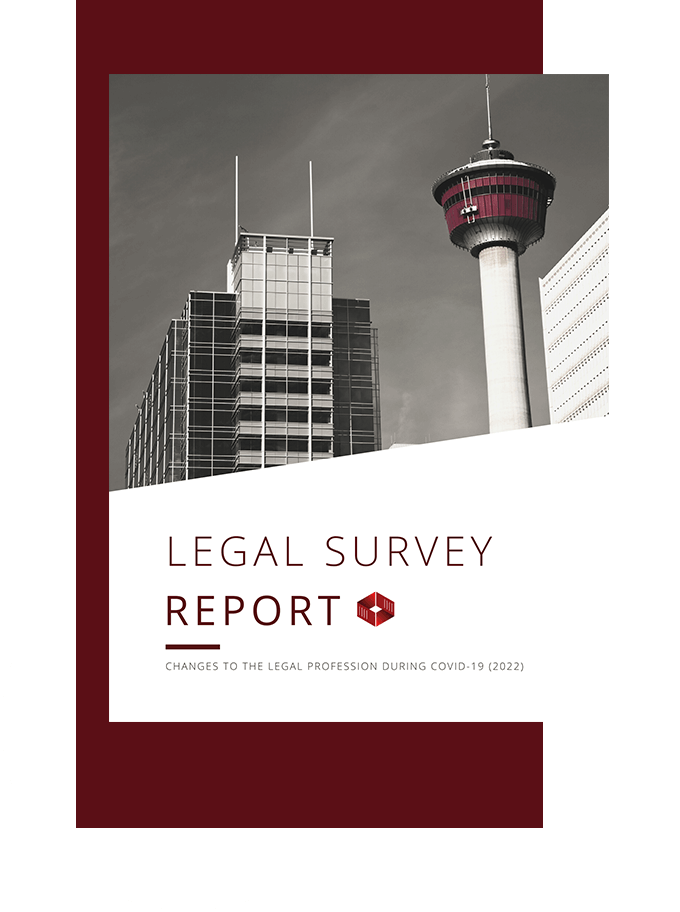
4 Post-IME Tips
Introduction
Last week, I wrote on how best to prepare ahead of an IME. I outlined some useful tips from the perspective of an IME industry insider. This week we will expand on this by running through some post-IME tips.
Tip #1 Check In With Your Client
It is common, and recommended, practice to prepare your client ahead of their IME on what to expect and what not to do. It is at least just as important to check in with your client after the examination has occurred. There are two reasons for this:
-
The best interests of your client.
It is important to hear from your client on how thorough the doctor's examination was, what the doctor asked, and whether the specific questions you had for the doctor were addressed. You, or your paralegal, are the best person to assess this, and it is better to speak to the client when the event is still fresh in mind. This simple action may reveal a small missed detail that could be communicated to the doctor prior to a report being produced, which may have a positive impact on the final outcome for your client. Additionally, it is important to clarify an issue before the doctor puts pen to paper so that you are not asking for a revision or addition to an already existing first draft. If working on contingency, it may be advisable to reduce the time cost by assigning this task to a paralegal, who in many cases may indeed be the best person for this job. -
The best interests of your other and future clients.
A post-IME conversation with your client may reveal issues with an assessor that could result in less defensible reporting. If identified, they should be noted when considering this assessor for IMEs on other files. Ask the following questions:- How long was the actual examination? Note, a short examination is not necessarily an indication of a poor IME doctor. It may be short because the injury is simple, or specific and necessitating the examination of only one area. However, be wary of examinations that are overly short on a file with serious and/or multiple injuries falling under that assessor's area of expertise. You do not want your assessor to be cross examined on how it is possible for them to opine on multiple areas of injury after having spent only 5-10 minutes examining your client if the examination length is discovered. There are many examples of reports being tossed out of court for this issue.
- Were you examined by the doctor or the doctor's assistant? If the doctor used an assistant to take initial measurements, were you eventually examined by the doctor? It is not unusual for an assessor to use an assistant to take initial measurements, and the use of one is not a reason to avoid the assessor. However, if your client never sees the assessing expert throughout the examination, this is a major red flag. Shockingly, though rarely, this does happen.
Tip #2 Book at Post-IME Teleconference
If appropriate, it is important to speak with the doctor directly after the IME. In this TC you can reinforce the main questions on the file and get the expert's initial impression. Occasionally, it can be determined that the report may not be beneficial to your client's case. If this becomes clear, it is important to tell the doctor not to produce a report before a first draft is written, which can be discoverable. Many experts will bill less if a written report is not required.
Tip #3 Diarize Report Reminders
I stressed the importance of reminders in my previous article where I recommended the practice of tactically managing reporting deadlines. It is worth stressing again that the consistent practice of calendaring reminders pertaining to IMEs (booking, cancellation, reporting deadline, etc.) will save you a lot of grief and money. One final reminder you should diarize can be done after the post-IME TC. Clarify the reporting deadline you have previously communicated to the doctor via the letter of instruction, then have your assistant enter a follow-up reminder for the day before your stated report delivery deadline. They should check that the report is on track for delivery on this date. After years of working in an IME referral clinic, I can say confidently that the squeaky wheel does indeed get the grease.
Tip #4 Pay Your Bills Promptly
Maintaining a good relationship with an IME doctor and their MOAs or referral clinics results in them being more likely to help you out when you need something from them, and paying your bills immediately goes a long way. Experts and referral clinics do business with numerous legal offices, and it should come as no surprise that the firms who pay promptly get better treatment more consistently. This can be extremely valuable in the long run when you need a rush report, a short notice IME, or cancellation fee forgiveness.
Take it from someone on the referral clinic side of this transaction, there was a lot I would do to keep a good client happy. We once had an examinee from a top client who was in danger of missing his IME at our office in downtown Vancouver. Already late, he took a wrong turn onto West Georgia Street heading to the Lions Gate Bridge in rush hour, and got his huge GMC truck stuck in traffic in the middle lane. With him on the phone, I ran out of the office, down West Georgia, and waded into the gridlock. Finding his truck, I knocked on the driver's side door, told him to switch places with me and directed him to our clinic on speakerphone while I negotiated his vehicle out of traffic and parked it. All the while thanking the gods he didn't own a manual transmission.
All that is to say, if you maintain these practices, you will see significant benefits over time.
Visit our features page for more information, and feel free to contact us at info@tracument.com to schedule a demo.
You may also like
Happy Holidays Message from David Swadden, CEO
December 18, 2025
We would like to wish all our clients and readers a wonderful holiday season filled with joy and laughter.
Tracument Holiday Schedule
December 11, 2025
We would like to update all our clients of our Holiday Schedule this holiday season!
Tracument Wrapped!
December 4, 2025
What 2025 Looked like for Tracument and for you!




